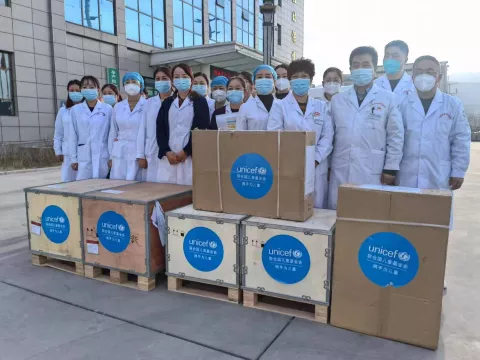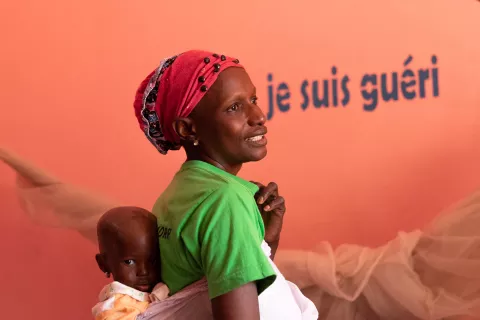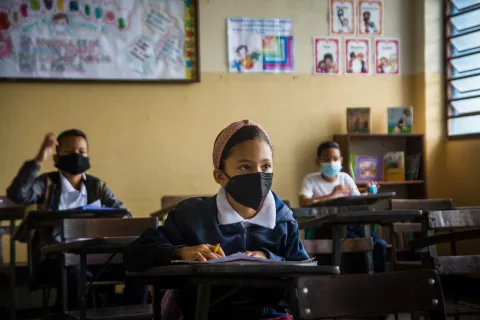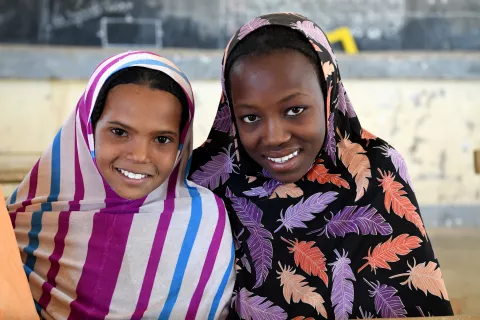The role of Civil Society Organizations in preventing COVID-19 in Sierra Leone and China
The role of CSOs in preventing COVID-19
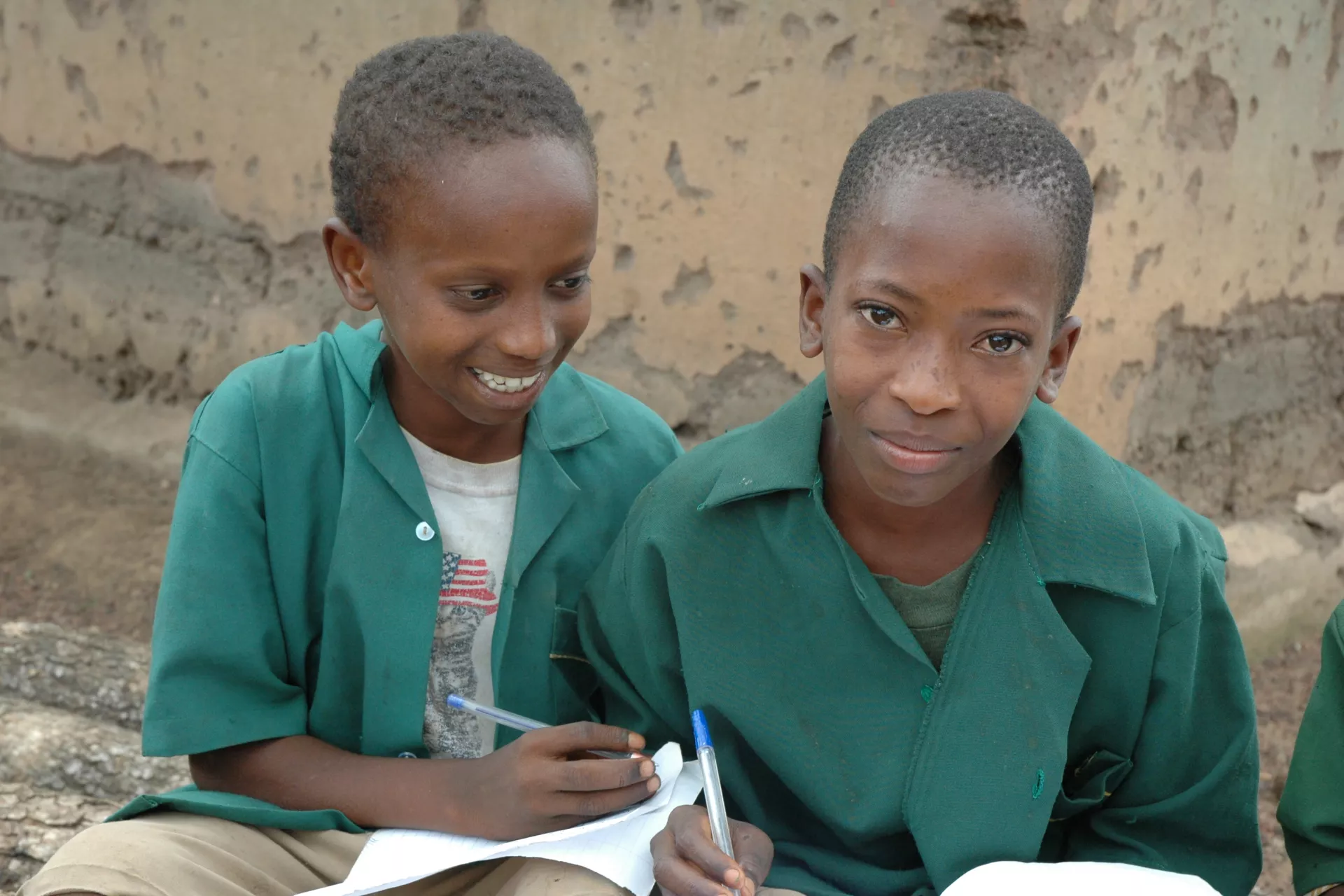
- Available in:
- 中文
- English
Civil society organizations (CSOs) play a vital role in communicating risks and engaging with communities to help mitigate COVID-19. UNICEF, together with the China NGO Network for International Exchanges (CNIE), recently held a virtual session to support the sharing of knowledge and experiences between CSOs in China and Sierra Leone. This is part of UNICEF’s work in South-South Cooperation - the exchange of resources, technology, and knowledge between developing countries.
During a webinar held on 25 August 2020, more than 30 participants from China and Sierra Leone shared knowledge and practical experience in Risk Communication and Community Engagement (RCCE) during the COVID-19 outbreak. Participants also included representatives from the Chinese medical team in Sierra Leone.
Mr. Wang Ke, Deputy Secretary-General of CNIE, expressed his organization’s support for a united approach to mitigating COVID-19. “COVID-19 knows no boundaries. Solidarity and cooperation are international community's most powerful weapon to defeat the pandemic. In March of this year, CNIE launched the CSOs Anti-Pandemic Joint Action under the "Silk Road Community Building Initiative". In conjunction with Chinese CSOs and enterprises, CNIE has donated anti-pandemic supplies to 18 African countries. In the future, CNIE and Chinese CSOs are willing to continue to support people in need in African countries and promote knowledge exchange among African and Chinese people. We would also like to work with UN organizations, including UNICEF, to achieve the Sustainable Development Goals.” said Mr. Wang Ke.
Dr. Suleiman Braimoh, UNICEF Representative in Sierra Leone stressed the importance of CSOs in preventing COVID-19. “Civil society organizations play a critical role in engaging communities and raising awareness to help bring about desired changes in health-related behaviours. In Sierra Leone, UNICEF in partnership with the government is collaborating with these civil society organizations in various risk communication and community engagement initiatives to promote preventive measures for COVID-19” said Dr. Braimoh. Dr. Braimoh also emphasized that gains in maternal and child health could be reversed if people do not receive the information about COVID-19 needed to provide them with the confidence to seek health services - even during the pandemic.
Participants discussed the critical role of CSOs in mitigating COVID-19 at the community level, highlighting how digital, radio and interpersonal platforms and social media can be used to collect and disseminate the right information about COVID-19; the need to focus on the most vulnerable populations such as children, women and the elderly; and efforts to engage youth volunteers, traditional leaders and other influencers to raise public awareness for positive behavioural change in the context of COVID-19. Speakers also stressed the importance of evidence and data in shaping these approaches.
“We hope this virtual meeting serves as a starting point for us to facilitate more knowledge-sharing across CSOs and inspire all of us to explore more opportunities for in-depth South-South cooperation for emergency and development programmes in the best interest of children,” said Dr. Alison Jenkins, Senior Advisor of South-South Cooperation and Partnerships, UNICEF China.
Partnerships between UNICEF and both national and international CSOs create opportunities for these organizations to contribute their strengths towards preventing COVID-19, as well as humanitarian and development programmes more broadly, for the benefit of children and communities.
UNICEF Sierra Leone has received support from China’s South-South Cooperation Assistance Fund to implement the ‘China-Africa collaboration to accelerate maternal, newborn and child health (MNCH) in Sierra Leone’ project, which aims to reduce maternal and infant mortality in the country. Despite various challenges arising from COVID-19, the project has established a Special Baby Care Unit in Kailahun, installed equipment, and recruited a pediatrician to improve the management of very sick and premature babies at Kailahun District Hospital. More information about UNICEF’s China-Africa MNCH efforts can be found here.
The heart of UNICEF’s work is in the field. UNICEF recognizes the importance of engaging civil society organizations to help create a world fit for children. In 2019, globally, UNICEF collaborated with 1,394 civil society partners in its humanitarian programming, about two thirds of whom were local partners.


